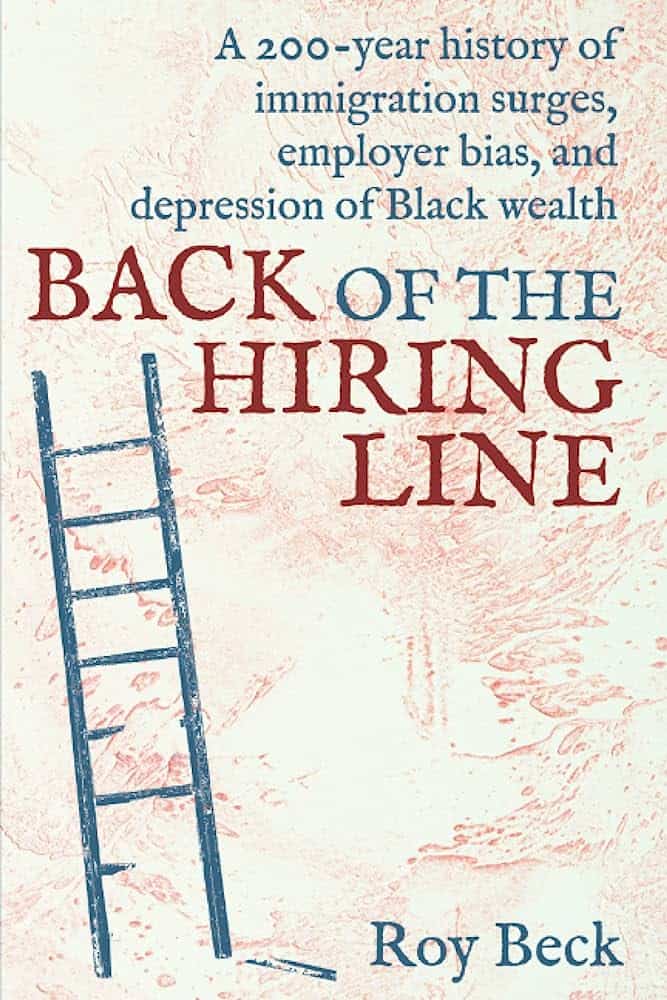
Back of the Hiring Line: A 200-year history of immigration surges, employer bias, and depression of Black wealth by Roy Beck is a grand sweep of the little-told stories of the struggles of freed slaves and their descendants to climb job ladders in the eras of Frederick Douglass, W.E.B. Du Bois, Marcus Garvey, A. Philip Randolph, Barbara Jordan, and other African American leaders who advocated tight-labor migration policies.
Looking to the future, the author finds in the past assurance that any immigration policy that helps move more Black workers into the labor force and increases their wealth accumulation will also assist struggling Hispanics and other populations of recent immigration.
Roy Howard Beck, a native of the Ozarks, was grateful to be able to pay his full way through the University of Missouri School of Journalism with wages earned during eight tight-labor-era years in first-rung jobs in the occupations of production-line factory welding, bridge construction, hay harvesting, roofing, landscaping, and as a recreation counselor in an inner-urban Boys Club, an office assistant, and a runner in door-to-door milk delivery. Reporting at newspapers in Michigan, Ohio, Missouri, and Texas, he encountered the urban unrest of the late 1960s, the Great Society’s programs on poverty, racial integration, and urban development in the 1970s, and the growing economic disparities of the 1980s and 1990s, filing reports from dozens of states and 10 countries of Asia, Central and South America, and the Caribbean. He was the Chief Washington Correspondent of the Booth chain of daily newspapers during consideration and passage of the 1990 immigration act. One of his magazine and journal articles (in the Atlantic Monthly) was chosen by the Encyclopedia Britannica for its Annals of America as one of the most important writings about the United States during the 1990s. Roy founded the bipartisan NumbersUSA Education & Research Foundation after the death of civil rights icon Barbara Jordan’s in 1996 in part to educate on her recommendations and findings as chair of the U.S. Commission on Immigration Reform. Roy is also Chair Emeritus of NumbersUSA Action and founder of Americans for Better Immigration.




